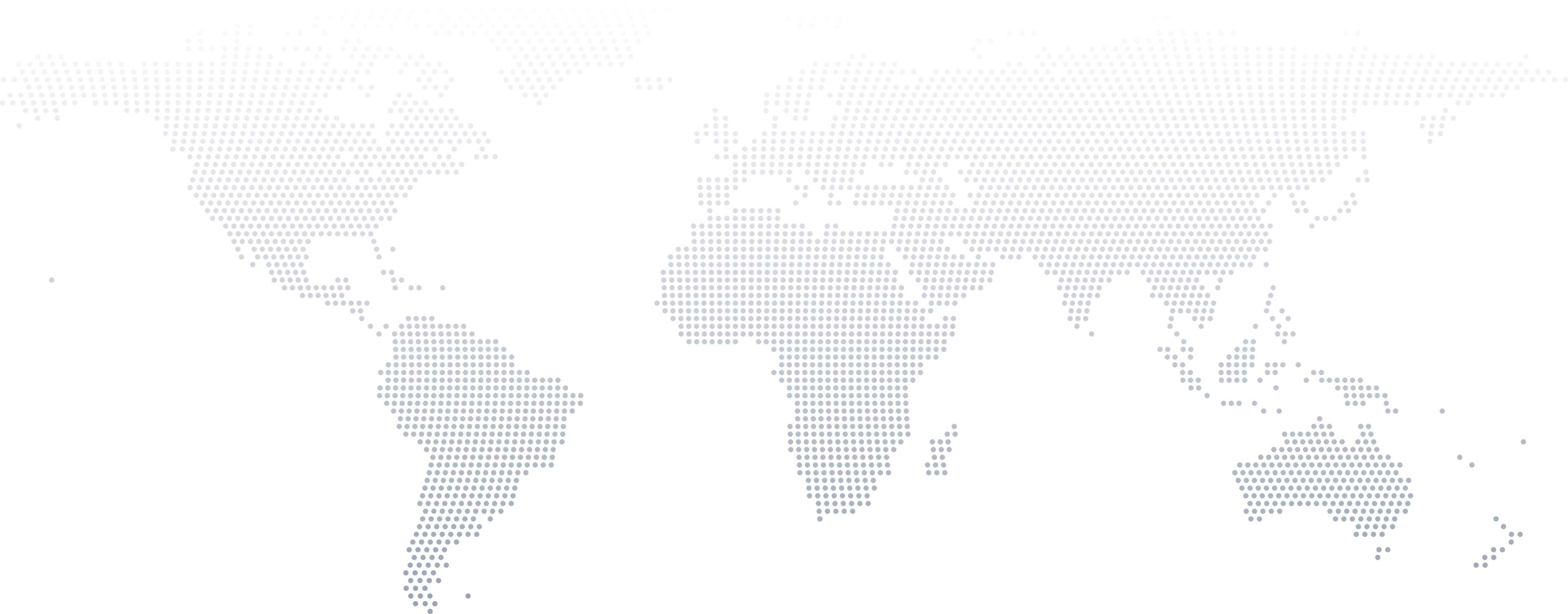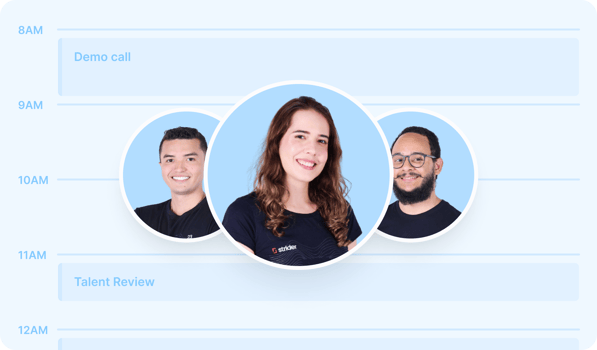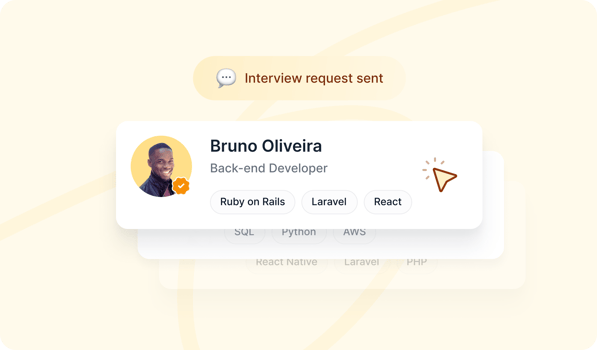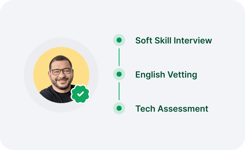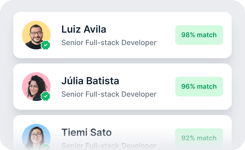Hire Remote IoT Developers Effectively
Internet of Things (IoT) has emerged as a game-changer, transforming various industries and enabling a new level of connectivity and automation. As organizations seek to capitalize on the opportunities presented by IoT, the demand for skilled IoT developers has skyrocketed. However, finding and hiring experienced IoT developers in this specialized field can be challenging.
Hiring IoT developers effectively requires a comprehensive understanding of the unique skill set and knowledge base required for success in this domain. IoT development will involve a combination of hardware and software expertise and a deep understanding of networking protocols, data analytics, and security considerations.
Moreover, IoT developers should possess strong problem-solving and communication skills to collaborate effectively with cross-functional teams. Organizations must adopt a strategic approach encompassing various key considerations to ensure a successful hiring process. This page explores essential steps and best practices to help companies hire IoT developers effectively.
By following these guidelines, organizations can attract and retain top talent in the IoT space, driving innovation and achieving their business objectives for your custom IoT solutions.
What to Look for When Hiring IoT Developers
Technical skills
When hiring the right IoT developer, assessing their technical skills is crucial to ensure they have the expertise required for IoT projects. Look for developers proficient in programming languages commonly used in IoT, such as Python, C/C++, Java, and JavaScript. They should deeply understand IoT protocols and frameworks, including MQTT, CoAP, Zigbee, and Bluetooth Low Energy (BLE).
Additionally, knowledge of IoT wearable development, cloud computing and services, data analytics, machine learning, and web development is essential for building scalable and efficient IoT solutions. Assess their experience with sensor development, wearable devices, and integrating applications with various IoT devices and platforms.
Communication skills
Effective communication is vital when working with IoT app developers, who often collaborate with cross-functional teams and stakeholders. Look for developers who possess excellent verbal and written communication skills. They should be able to articulate complex technical concepts clearly and concisely.
Strong interpersonal skills are crucial for effective collaboration, as they need to understand client requirements, work with project managers, and exchange data with other team members. Assess their ability to explain technical concepts to non-technical stakeholders and their proficiency in using collaboration tools for remote team communication.
IoT security
Security is a critical aspect of IoT development, and hiring developers with expertise in IoT security is essential to protect your applications and connected devices. Look for developers who deeply understand IoT security best practices and protocols.
They should be familiar with encryption algorithms, authentication mechanisms, secure communication protocols, and vulnerability assessment techniques. Assess their knowledge of securing IoT devices, data privacy, and mitigating common IoT security challenges.
Edge computing
Edge computing is gaining prominence in IoT applications, allowing data processing and analysis to be performed closer to the devices, reducing latency and optimizing bandwidth usage. When hiring IoT developers, consider their knowledge and experience with edge computing technologies.
Hire dedicated IoT developers who understand edge computing concepts and have practical experience deploying edge computing solutions. They should be familiar with edge computing frameworks, such as TensorFlow Lite and Apache NiFi, and be able to design and optimize applications for edge devices.
Predictive maintenance
Predictive maintenance is a valuable application of IoT that enables organizations to identify potential equipment failures and perform maintenance proactively. When hiring IoT developers, consider their experience with predictive maintenance solutions.
Get top IoT developers who have worked on projects involving real-time data analysis, machine learning algorithms, and sensor data integration. They should be proficient in implementing and integrating predictive maintenance models into IoT systems to optimize maintenance schedules and improve operational efficiency.
Top 5 IoT Developer Interview Questions
What is Pulse Width Modulation (PWM)?
Asking about PWM helps evaluate a candidate's understanding of a fundamental concept widely used in IoT applications. PWM is a technique that modulates the width of pulses in a signal to control the average power delivered to a device or component.
A candidate's answer should demonstrate their knowledge of how PWM is used in IoT systems to control devices, such as motors or LED brightness. Look for candidates who explain the concept and provide real-world examples of PWM implementation.
What is the main difference between a floating-point CPU and a fixed-point CPU?
This question assesses a candidate's understanding of CPU architectures and their implications in IoT development. A fixed-point CPU performs arithmetic operations on fixed-point numbers, while a floating-point CPU works with floating-point numbers.
By asking this question, hiring managers can gauge a candidate's familiarity with the advantages and limitations of each CPU type of IoT application. Look for candidates who can explain the trade-offs regarding precision, speed, and memory usage and discuss when each CPU type is more suitable.
Why use the scheduler in RTOS?
RTOS (Real-Time Operating System) is a critical component in an IoT project, and understanding its scheduler is essential for efficient task management. This question assesses a candidate's knowledge of RTOS and their understanding of scheduling algorithms.
Candidates should explain the purpose of a scheduler in managing tasks, handling priorities, and ensuring timely execution. Look for candidates who can discuss different scheduling algorithms (such as round-robin or priority-based) and their advantages in specific IoT scenarios.
What are the various types of antennas designed for IoT devices?
Antennas play a vital role in wireless communication within IoT systems. Asking about different antenna types helps evaluate a candidate's knowledge of wireless connectivity options.
Look for candidates who can discuss common types, such as dipole, monopole, patch, or helical antennas, and their characteristics. Candidates should demonstrate an understanding of antenna design considerations, such as frequency range, gain, size, and environmental factors that can impact wireless performance.
What are IoT test approaches?
This question examines a candidate's familiarity with testing methodologies and their ability to ensure the quality and reliability of IoT applications. Candidates should discuss various approaches, such as functional testing, interoperability testing, security testing, and performance testing.
Look for a dedicated iot developer who can explain how they validate the functionality of IoT devices, test data integrity, assess compatibility with different platforms, and address security vulnerabilities.
